eCommerce: Ramadan
Online Shopping in Ramadan: Consumer Trends & Marketing Tips
Ramadan, celebrated by a quarter of the world's population, isn't just spiritual but crucial for eCommerce too. How does it alter shopping habits, and what should businesses do to adapt?
Article by Cihan Uzunoglu | March 15, 2024Download
Coming soon
Share

Online Shopping in Ramadan: Key Insights
Time for Discovery: The period of Ramadan is ripe with opportunities for online businesses. By offering customized recommendations and expanding their product range, businesses tap into a growing appetite for new experiences and increased spending.
Community Focus: The emphasis on community and kindness during Ramadan creates a prime opportunity for eCommerce platforms. They can capture the hearts of their audience with content that uplifts and fosters a sense of togetherness.
Mobile Dynamics: The landscape of mobile eCommerce reveals a mix of trends during Ramadan. While some regions show a surge in app interest, there's a notable decline in installations globally, showcasing the unique shopping behaviors of this festive season.
Spotlight on Indonesia: In Indonesia, the Ramadan season brings a significant uptick in eCommerce activities. Consumers spend more time on apps and are more open to discovering new brands, underscoring the country's crucial role in shaping festive shopping trends.
Revamping Engagement: Engaging the Muslim audience during Ramadan requires a blend of strategies. From unveiling special deals to crafting thematic content, speeding up shipping, forging influencer partnerships, and engaging in personal communication, these efforts are key to attracting and retaining customers.
With the arrival of Ramadan, people around the world are celebrating the holy month. While it is common knowledge that the month of Ramadan is widely observed, its reach may be greater than what you think.
As per Statista data, 1.2 billion people in Asia-Pacific, around 420 million in the Middle East and North Africa (MENA), almost 400 million in Sub-Saharan Africa, 45 million in Europe, 4 million in North America, and 760,000 in Latin America and the Caribbean celebrated Ramadan last year. This amounts to over 2 billion individuals – about one quarter of the global population.
In addition to its spiritual significance, Ramadan is also a key time for online shopping, as it is observed by such a significant portion of the world's population. But how exactly does this period affect online shopping? How does consumer behavior change during Ramadan, and what can businesses do to take full advantage of the benefits and challenges it brings?
Ramadan as a Driver for
Discovery Commerce
Ramadan is a time of reflection and transformation. During this period – which moves backwards about 10 days each year relative to the Gregorian calendar – Muslims reset, reflect and come together to celebrate. Used wisely, this is a unique opportunity for online businesses to stand out from the competition.
The concept of discovery commerce, a strategy where businesses aim to introduce their products to customers at the moment they are most open to discovering new items, becomes especially relevant in this context.
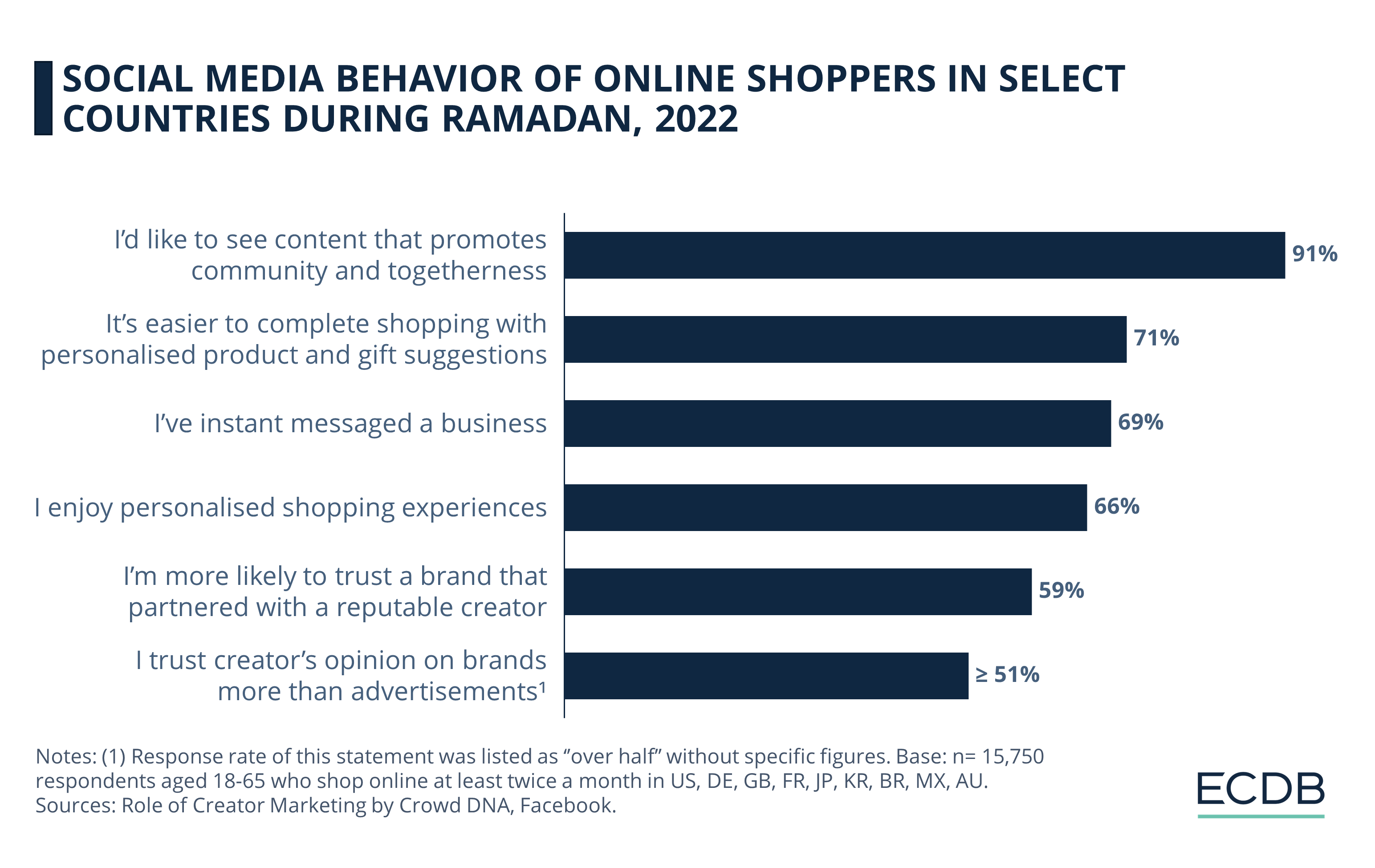
Data from a study commissioned by Meta through YouGov reveals that 77% of people see changing their regular habits during Ramadan not just as a chance for self-reflection, but also as a catalyst for considering further changes all year long. This willingness to adapt and explore is particularly notable in Ramadan, with 72% of consumers more inclined to try new product categories now than at any other time.
Furthermore, the Ramadan period is marked by increased spending, with most shoppers reporting higher expenditure year after year. This heightened period of contemplation means shoppers are on the lookout for personalized recommendations to ease their decision-making process. In addition, Meta Platforms data highlights that 71% of those surveyed find their Ramadan shopping simplified by tailored product and gift ideas.
With developments such as Artificial Intelligence, personalized recommendations have become an integral part of the shopping experience, especially on social commerce platforms. During Ramadan, 66% of shoppers or observers appreciate personalized shopping journeys on Meta platforms, like Facebook and Instagram.
Social Commerce Engagement:
Ramadan Buzzwords
Ramadan is fundamentally about community and kindness. Beyond the social environment, this translates very well to digital platforms as well.
Meta Platforms noted that in the period from late March to early May 2022 – encompassing the time before Ramadan and following Eid of that year – Instagram saw more than 13.4 million interactions related to "togetherness", "connection", and "community". Specifically, on the last day of Ramadan 2022, Facebook recorded over 7.8 million interactions focusing on "kindness".
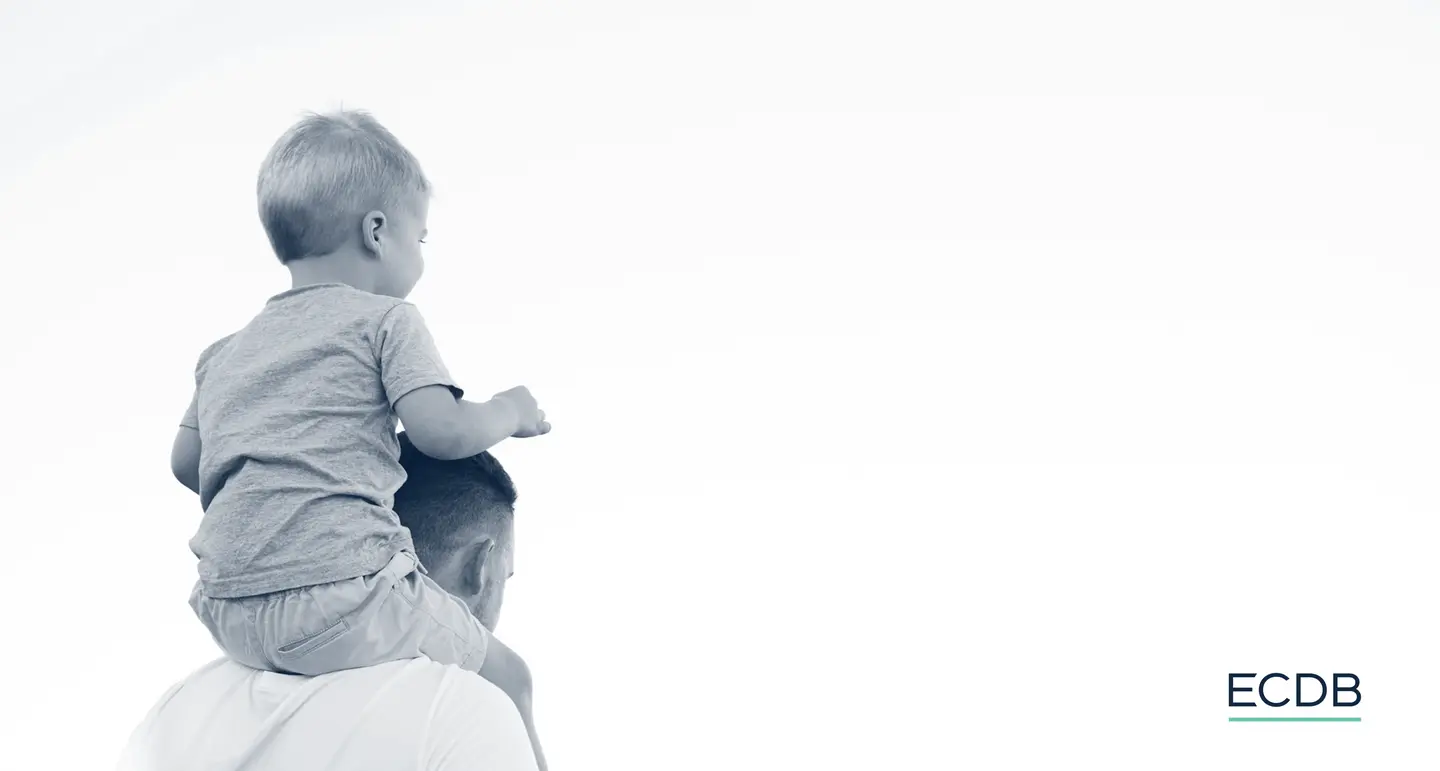
Not only that, but 91% of people who shop or observe during this period expressed a preference on both Facebook and Instagram for content that promotes a sense of community and unity during Ramadan and Eid.
As this period is characterized by an emphasis on solidarity and closeness, it presents a prime opportunity for eCommerce marketers to connect with their audiences through messages that are both positive and emotional, taking into account the popular words and concepts circulating on social media.
Mobile Commerce Usage in Ramadan
It is no secret that mobile commerce is a significant part of online shopping. Last year, the mobile eCommerce market reached US$1.7 trillion, accounting for more than half of all eCommerce sales. From 43% in 2018 to a projected 63% by 2028, mobile commerce's share of total eCommerce is consistently growing.
In light of this increase, it is relevant to look beyond social media trends to examine mobile commerce during Ramadan, as it reveals trends worthy of a closer look.
Decreased eCommerce App Installations
During last year’s Ramadan, eCommerce app installations showed mixed results globally, with a noticeable 15% decrease overall. This potentially suggests that the appeal of shopping in physical stores or reduced online shopping activity during the fasting hours might have influenced this downturn.
In contrast to the overall trend, Egypt and Saudi Arabia displayed resilience in the digital market, registering installation growths of 17% and 7% respectively. Conversely, the UAE experienced a stark 23% reduction in eCommerce app installations, marking the most significant drop observed in the Data.ai study.
Changes in eCommerce App Shopping Behavior
The same study by Data.ai shows that Ramadan 2023 saw a slight decline in global eCommerce app sessions by 1%, with the METAP region (22 countries in the Middle East, North Africa, and parts of Asia) facing a more pronounced 4% fall.
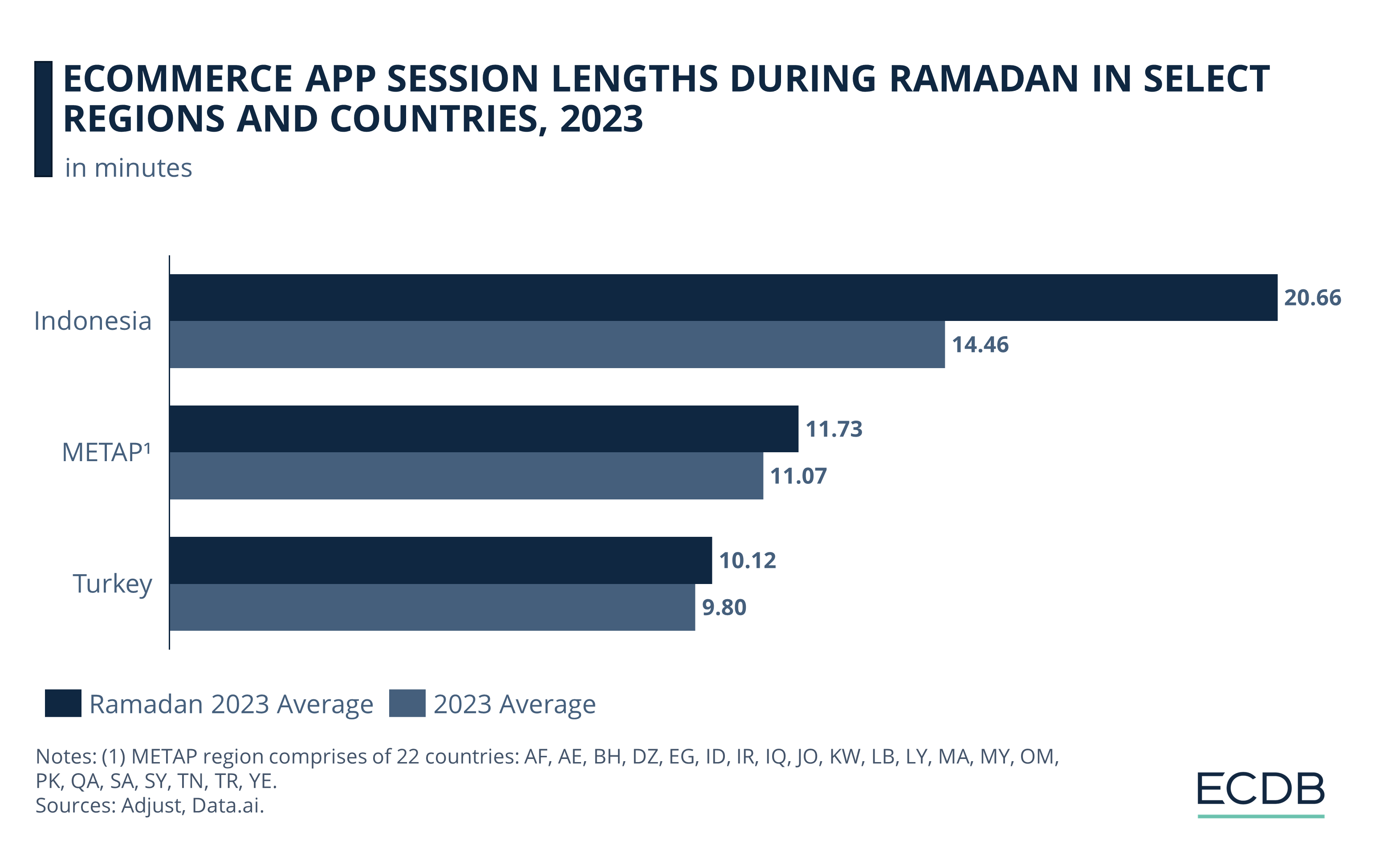
Notably, Egypt encountered a sharp 71% decrease in eCommerce app sessions, possibly due to a preference for the in-person shopping experience, which is rich in festive ambiance and allows direct interaction with products. Indonesia, on the other hand, presented an exception to the trend, with a 14% increase in app sessions.
Regional Differences in eCommerce App Revenue
While the global scene for eCommerce apps recorded a slight 2% reduction in revenue events, which refer to specific actions within an app that generate revenue – such as transactions or in-app purchases, the METAP region experienced a more significant 6% decline.
While Bangladesh faced a substantial 60% decrease in revenue, Indonesia and Saudi Arabia conversely experienced notable revenue increases of 84% and 19% respectively, showcasing the varying impact of Ramadan on eCommerce across different regions.
Indonesia: High eCommerce Engagement
in Ramadan
Turning our focus towards Indonesia, a country that not only stands out in the eCommerce landscape but also hosts the largest Muslim population globally with approximately 231 million Muslim residents, provides a compelling backdrop for exploring consumer behavior during Ramadan.
Indonesia ranks as the 8th largest eCommerce market worldwide, boasting revenues of US$72.6 billion in 2023. Surpassing markets like France and Canada, and with a projected market volume of US$204 billion by 2028, the country’s eCommerce scene is on a rapid ascent with a CAGR of 21% expected from 2024 to 2028.
Longer App Sessions & Elevated Discovery Commerce
The Ramadan period in Indonesia sees a significant increase in eCommerce app engagement, with the average session length soaring from 14 to 20 minutes, reflecting consumers' willingness to explore new brands during the holy month.
Remarkably, 93% of Ramadan purchases in Indonesia are thought out in advance, with nearly half occurring in the first week of the festival. In addition to that, 88% of consumers ventured into buying from at least one new retailer, which ties back to the discovery commerce aspect of Ramadan talked we touched upon earlier.
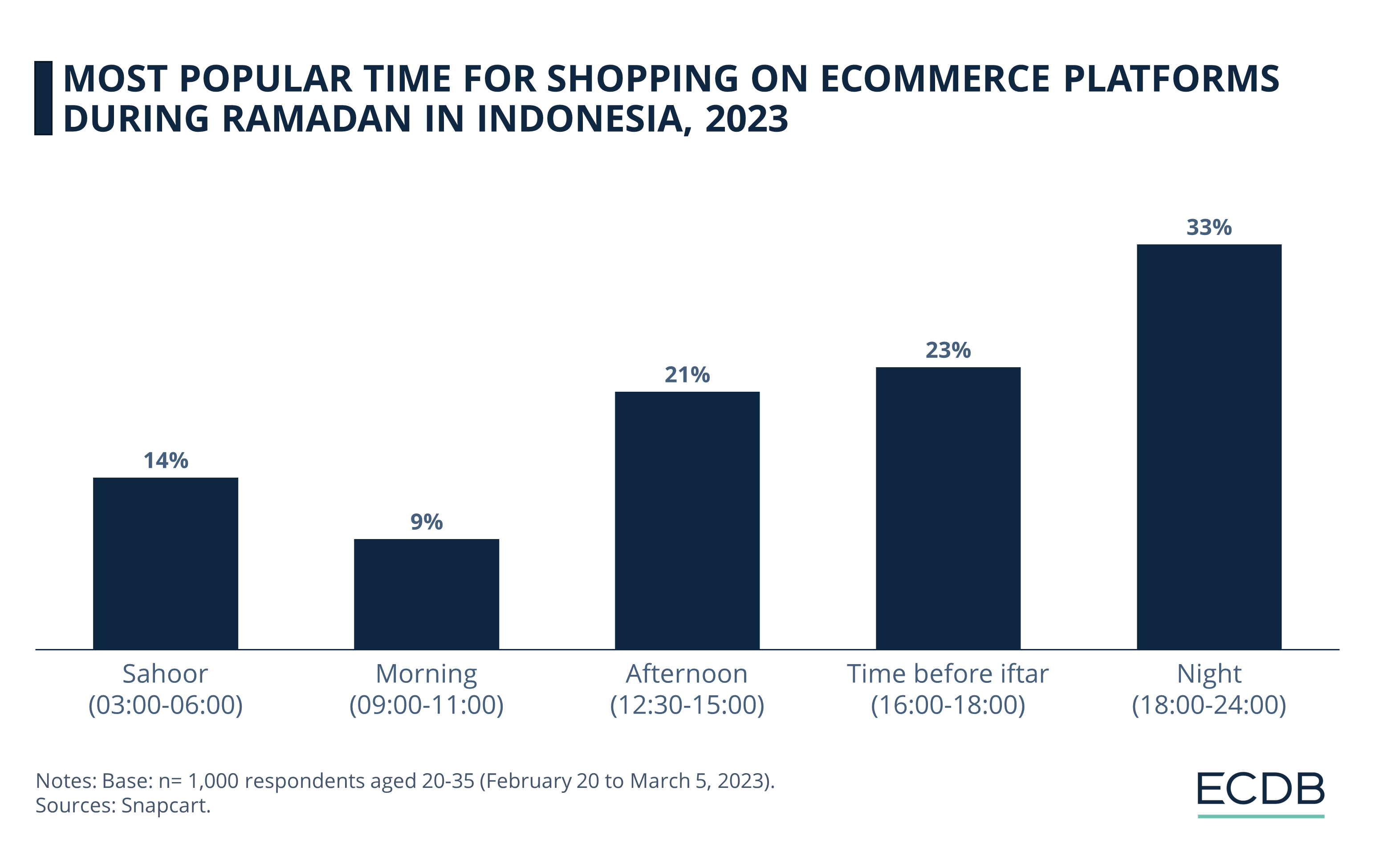
Digital platforms play a decisive role in influencing consumer purchasing decisions in the country, with 70% of research conducted online during Ramadan. Among these channels, search engines and YouTube emerge as the most impactful.
The power of advertising during Ramadan is undeniable, as highlighted by a Kantar study where 89% of YouTube viewers in Indonesia discovered new brands or products through ads on the platform, with 80% being swayed in their purchasing decisions by these advertisements.
How to Increase eCommerce Engagement
in Ramadan
Having established an understanding of how consumer behavior changes during this festive period, let’s now get into how online businesses can ramp up engagement during Ramadan.
This crucial period offers unique opportunities to connect with and attract the Muslim audience through thoughtful strategies and personalized experiences.
Special Deals and Discounts
A standout strategy for attracting customers during Ramadan is launching special deals and discounts. Given the high spending on gifts, slashing prices on popular items can draw customers away from competitors.
Launching Ramadan-specific discounts or product bundles can prove particularly effective. YouGov research indicates that nearly half (49%) of the consumers look for discounts during Ramadan, making it as significant as Black Friday for online shopping in the MENA region.
Promotions and Social Media Advertising
Creating Ramadan-specific promotions or features for eCommerce apps enhances the shopping experience. This could range from discounts on Eid gifts to themed content and ads placed in gaming and entertainment apps.
Social media plays a crucial role in this aspect, with targeted ads helping to reach those searching for Ramadan products. As Meta Platforms data suggests, a significant 58% of consumers feel more connected to brands that present Ramadan content on platforms like Facebook and Instagram.
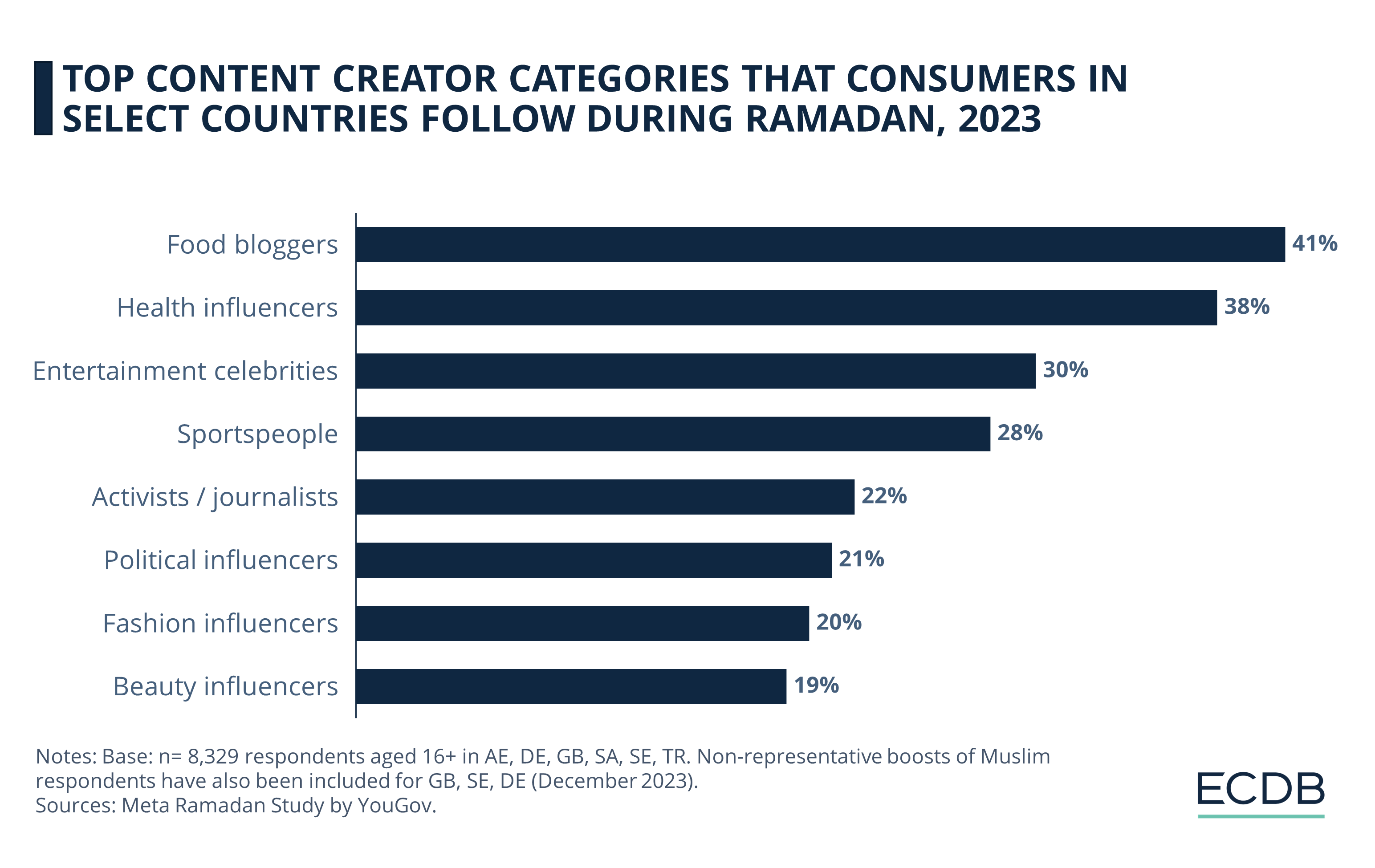
Fast Shipping
Offering expedited shipping options is another way to appeal to customers, providing convenience and a reason to choose your service over others. Collaborating with reliable logistics partners can ensure stress-free delivery during this busy period.
Although shipping is always key in the eCommerce context, Ramadan is a particular period given its altered consumer behavior and time-sensitive nature due to factors such as fasting and Eid.
Ramadan-themed Content
It might be stating the obvious, but it is key that online businesses cater to the needs and wants of their target audience in this celebratory time. With a 65% increase in video consumption during Ramadan and Eid, creating themed video content is a good starting point for engaging customers significantly.
Other than video, businesses can also make use of blog posts and social media content that resonate with the spirit of Ramadan, along with product reviews and gift guides.

Influencer Partnerships
Influencer marketing taps into a trusted and wide-reaching audience. Partnering with influencers who have a significant Muslim following can amplify your Ramadan campaigns, making sponsored content and shared discount codes effective tools for promotion.
The factor of trust has to be underlined here. Meta Platforms data shows that well more than half (59%) of consumers who celebrate Ramadan are more likely to trust brands that collaborate with credible creators. Utilizing influencer partnerships in this period can prove to be essential for online businesses.
Staying Connected
Last but not least, personalized communication through instant messaging can strengthen customer relationships, with two thirds of individuals feeling more connected to brands that engage directly during Ramadan.
It is important to remember that business messaging during Ramadan not only enhances customer experience but also serves as a powerful tool for driving overall sales.
Online Shopping in Ramadan:
Closing Thoughts
Ramadan's impact on online shopping highlights key strategies that resonate with consumers, emphasizing authenticity, personalization and innovation. The holy month encourages businesses to focus on understanding customer behavior and preferences, and tailoring marketing strategies to reflect cultural sensitivities and values.
Effective engagement during Ramadan requires a balance between traditional values and modern eCommerce practices. Adopting strategies that reflect sincerity and respect for cultural traditions can foster deeper connections with consumers, ultimately increasing brand loyalty and driving growth.
Sources: Adjust, Aramex, World Population Review, Think with Google: 1, 2, Facebook: 1, 2, Statista: 1, 2, ECDB

Click here for
more relevant insights from
our partner Mastercard.
Related insights
Deep Dive
The Customer Journey in Online Shopping: It Begins with Search Engines
The Customer Journey in Online Shopping: It Begins with Search Engines
Deep Dive
Fast Fashion Online Market: Fast Fashion Is Not Fair Fashion
Fast Fashion Online Market: Fast Fashion Is Not Fair Fashion
Deep Dive
Otto: Can the German Retail Company Maintain Relevance and Drive Revenue in eCommerce?
Otto: Can the German Retail Company Maintain Relevance and Drive Revenue in eCommerce?
Deep Dive
What Exactly Are In-Game or In-App Purchases?
What Exactly Are In-Game or In-App Purchases?
Deep Dive
AI in eCommerce: Better Deals, Greater Precision, and Easier Targeting
AI in eCommerce: Better Deals, Greater Precision, and Easier Targeting
Back to main topics